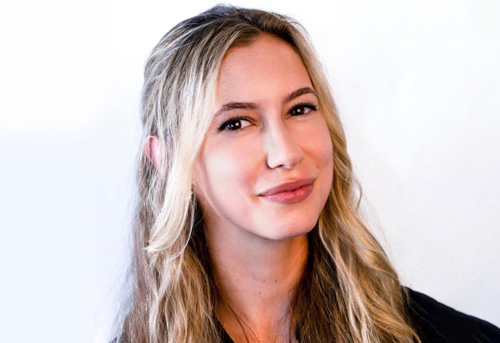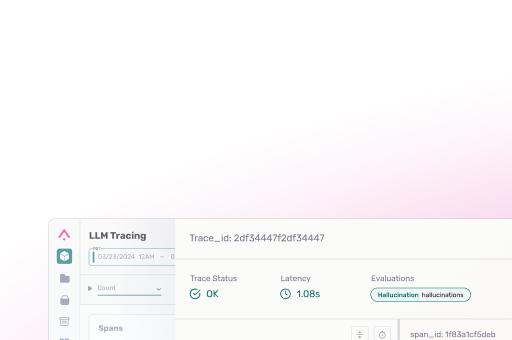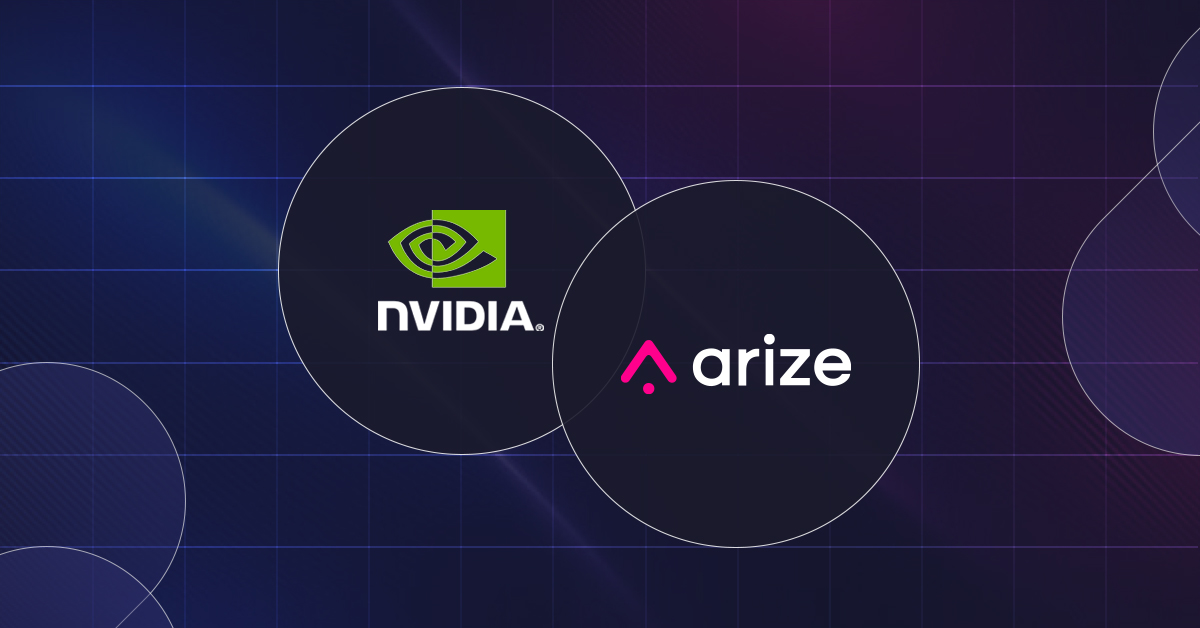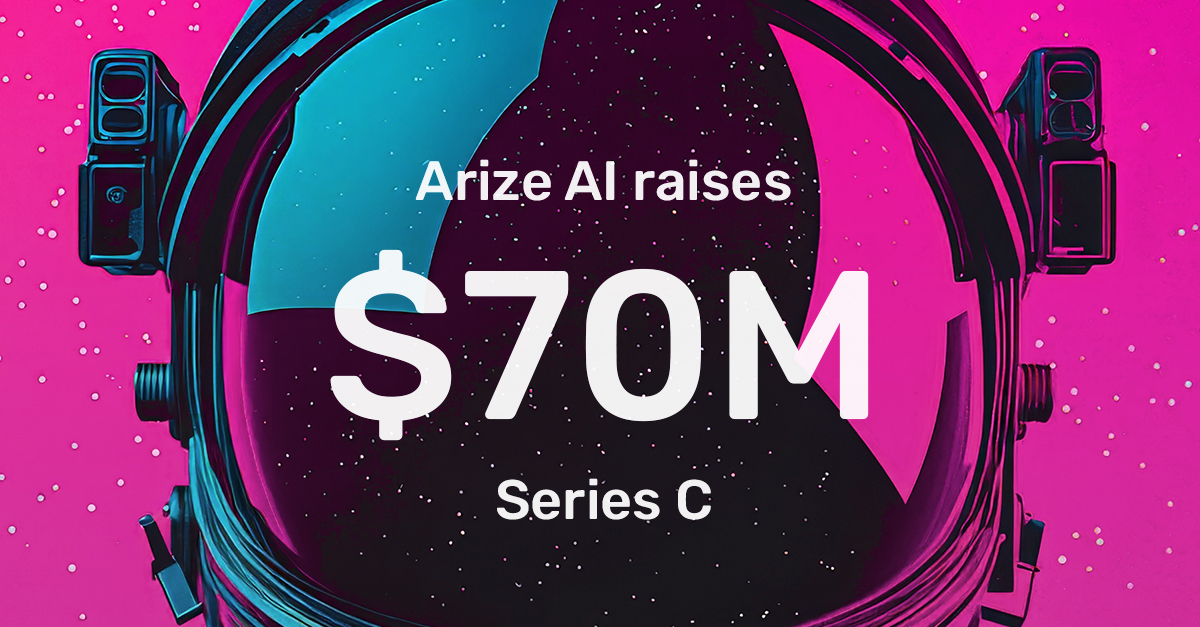
Introducing Amber Roberts, Arize’s Newest ML Sales Engineer
Shortly after Arize’s co-founders began talking to prospects and the company’s first customers, they also met Amber Roberts. An astrophysicist by training and a self-taught data scientist and ML engineer, Amber exuded a passion for connecting her work to a larger purpose and we could see right away that she shared our view that machine learning can be a powerful force of change for businesses, the economy and society.
After a few conversations, it was clear that Amber had the creativity, insight, perseverance and willingness to ask the kinds of questions that could help answer Arize customers’ most pressing problems. Today, we’re excited to welcome her to Arize as a sales engineer. Read on to learn more about Amber, her background and why she joined Arize.
Q: How did you make the leap from astrophysics to Arize?
Amber: I was drawn to astronomy and physics and ultimately got my Master’s in the field because I love big problems and am always looking for ways to maximize the impact of my work.
But I’m also somewhat impatient. With scientific research, it can take decades before you actually see results. And for those who are collaborative and want to solve challenges together, academia can be pretty isolating. It’s also very competitive to secure funding for important projects.
This is not to say that the academic route to solving big problems doesn’t work, it absolutely can. Some of the world’s greatest advancements have come from academic research.
When I looked at what was happening in the technology industry, specifically in AI and machine learning, the best ideas were getting funded quickly and at levels that I hadn’t seen before. At the same time, there was a big push for astronomers and physicists to join companies because of our familiarity with a range of problems the industry was trying to solve.
I had already been in the fields of astronomy and astrophysics, so I thought I’d add a few more buzzwords like AI and machine learning to my experience. I guess I’m a buzzword collector in that sense!
*I take out both of my laptops at airport security* Random guy: *scoffs* “What do you need 2 laptops for?” Me: “Well one is for my astrophysics work and one is for my artificial intelligence work.” #priceless #WomenInSTEM #womenintech #ai #GirlBoss
— Amber Roberts (@AstronomerAmber) November 19, 2018
Q: Was the push to add astrophysicists for commercial space endeavors?
Although space is a hot topic at the moment, not necessarily. Demand for talent with astrophysics experience is rooted in the emergence of new ways data and machine learning are being implemented to drive so many aspects of our lives.
Every single modern business is working with data and analytics and more and more are using ML models to solve their hardest problems. So the ability to build models and understand how they are working — the essence of our work in astrophysics — translates very easily to enterprise (as long as you’re not a theoretical physicist, of course). Ultimately, when astronomers are using ML to identify and categorize astronomical objects in enormous datasets, the model validation and model monitoring tools used to ensure algorithmic integrity are very similar in concept to those used by ML engineers.
Q: All the history, movies and current events that focus on space exploration focus on the physical objects like robots and spacecraft, is that where the real technology breakthroughs are happening?
There have been some great breakthroughs in physical design and that will continue to play a role in exploring the next frontier. Naturally, the public is fascinated with this aspect of space exploration because it’s so visual. Think about the moon landing or, for the younger generation, Marvel films or cool looking spaceships and androids. It sticks with you.
But behind the scenes, the proprietary stuff is in the software. When you think of the computer capabilities that took us to the moon, your phone is more powerful than the technology that was used in those missions.
Today, however, it’s the efficient building of software and machine learning techniques that are driving the industry forward. It’s so important because of the inherent risks and yet the software and data science always gets overlooked because the hardware side is a bit shinier. Building AI and ML into the software systems is allowing the space industry to move so much faster than before, it’s really inspiring.
Q: What piqued your interest in tech life?
I love to explore new challenges. In my astrophysics research, I was working with literally astronomical amounts of data and building data reduction pipelines before I even realized that was called data science. It was just my day to day.
As I started to dive deeper into how data science was being applied to challenges in the private sector, I quickly realized that our systems and tools were vastly outdated and lacked workflows to troubleshoot model performance. I was using technologies that have long been retired outside of academic labs and became really intrigued by what could be accomplished using the latest innovations in data science.
Q: But you didn’t have a background in engineering or computer science, when did you realize that your expertise would transfer?
In many ways, space exploration and research is all about detecting things that are similar and things that stand out. The things that stand out are interesting because they signal pattern deviation.
It doesn’t take an astrophysicist to realize that the ability to adapt in modern business is based on a similar ability to detect anomalies or new patterns in everything from supply chains to consumer preferences and everything in between.
So it’s the same problem applied to very different fields.
Q: So it turns out that using data and models to explain the birth, life and death of stars, planets, galaxies is not that far removed from using models to address business problems?
In a simplified way, yes. In the astrophysics crowd, there’s a popular article in WIRED that breaks down the phenomenon of astrophysicists moving to the tech industry. Many of us are leaving the field to join technology companies like Arize because we’re uniquely qualified to solve a class of mathematical problems that are barriers to the next wave of innovation in the industry.
Q: Once you left the astrophysics field, what was your path to Arize?
I started at Insight Data Science, which was a Fellowship program that involved consulting projects, hands-on machine learning and teaching. I’ve always liked wearing many hats.
And that’s when I first met Arize co-founders Aparna Dhinakaran and Jason Lopatecki. One of the fellows was a researcher with Aparna when they were in graduate school. She connected us, and Aparna and I hit it off right there and had some commonalities as women in machine learning. I knew right away that Arize was doing something unique from a technology standpoint, but also had a sense that they were at the early stages of building a special company culture.
Q: Given that you have been involved in real-life moonshot work, what are some of the big problems that better AI/ML systems can address if applied the right way?
The biggest issues we’re looking at at the moment are bias, responsible AI, ML observability, and explainability. Those are all aspects that have just picked up enormously in the industry.
We have to try and match explainability to incoming data. And right now, at the rate data is being created and collected there just aren’t enough systems in place to understand the behavior and data ethics behind that. What data can you use? What data can’t you use? What’s private, what’s not private?
And that is kind of being fixed as we go. So many teams have unimaginable amounts of data, so there’s a lot of questions around when to delete it, data efficacy and fairness.
We ultimately want machine learning to be as good as a human. But what happens if humans are biased, which we are? There’s a big double edged sword, because you need the data to make the predictions. You want the predictions to be close to humans. But humans are biased in nature, and it’s implicit. So what can we do to try to course correct for that?
And if we make things less biased, could that also make humans less biased? You don’t even know what comes first. Is technology showing you things it thinks that you want, and as a result you want it or believe it and ultimately become a data point that validates a machine-made hypothesis? It’s a really complex feedback loop.
But it comes back to bias, fairness and explainability. That is really where ML observability comes in.
The future for ML engineers is an embedded ML experience where ML observability, ML monitoring and model monitoring are a one-click deployment. There’s a huge push to see exactly what’s going wrong with models, when it’s going wrong and how to fix it. That’s what everyone wants.
And that’s what Arize is doing. But I think what Arize is ultimately aiming for isn’t just being able to pick something and say, this is what’s wrong, but also how to tackle it.
If you have an error, you can resolve it. And if you want to actually understand the ML behind it, you can dive into that, too, because Arize as a tool is not just for machine learning engineers, but anyone that works in the production pipeline that wants to keep making accurate results.
Q: Why is the sales engineer role so important when it comes to machine learning?
Sales engineering in ML is critical because many customers are trying to solve big or novel problems using AI for the first time. You need the ability to understand the technology, the business case and varying levels of complexity based on the organization’s ML infrastructure. It’s all still so relatively new.
ML observability is a bigger discussion than just “here’s a startup’s new tool.” It’s about the future of AI machine learning.
But the role transcends solely working with customers. Because we’re on the front lines, seeing customer problems for the first time and also witnessing how systems are dealing with the big issues of fairness, bias and observability we have the responsibility to be a voice for the broader community and that’s a role I will embrace.
Because it’s not only the data teams at companies that want to know how ML is working and why it’s making certain predictions and decisions. It’s you and I that want to know.
How am I getting this recommendation? Why are they giving this to me? Is it because of my age, my gender, where I’m located?
Did I accidentally click on something? How do I change it? How do I resolve it? And right now, there needs to be more of an option for consumers to say “this isn’t relevant or that isn’t relevant.”
Ultimately with Arize, customers are going to be able to see these kinds of micro decisions and how they work in ML models.
And the visibility should be extended to the consumer as well. And ultimately, the teams that Arize works with should be able to receive the most relevant and useful feedback and in turn provide the ultimate end user experience.
And I think we do that by making these algorithms not just good at what they’re designed to do, but making them understandable for those that they affect. That’s the real game changer.





